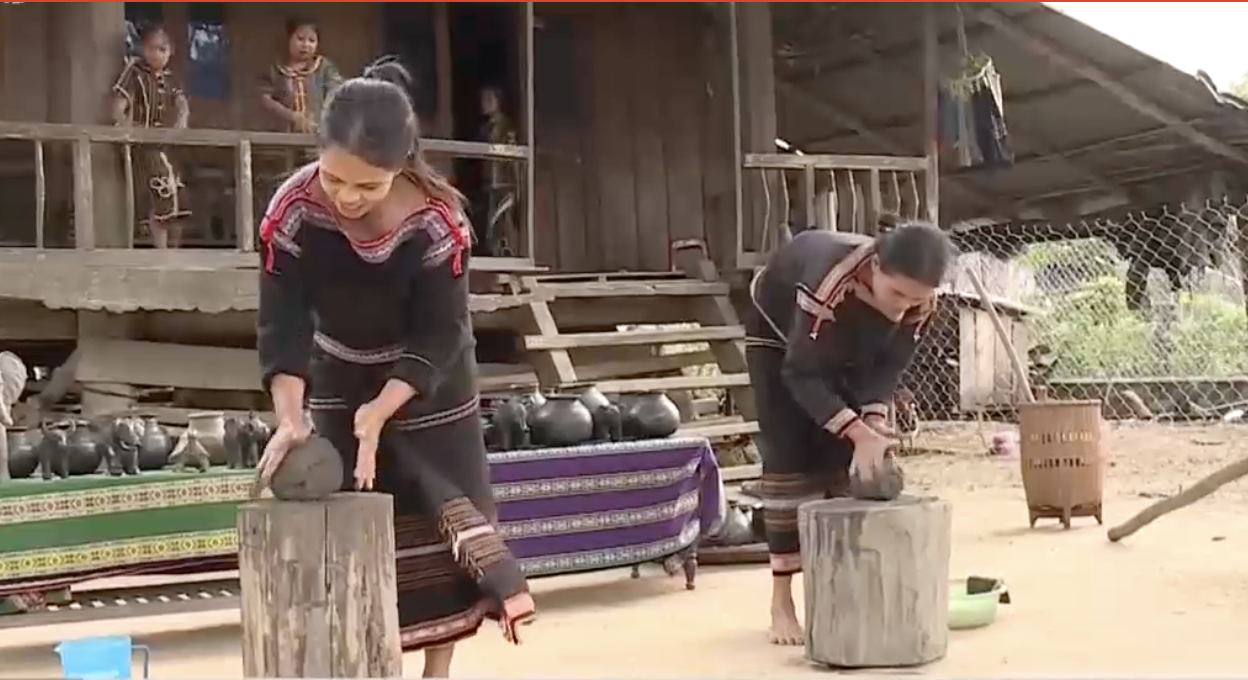
On the morning of October 26, the Vietnam Tropical Forestry Research Center in collaboration with Tay Nguyen University organized a workshop entitled "Consultation on the current situation and recommendations for preserving traditional pottery in Lak district".
Associate Professor, Dr. Buon Krong Thi Tuyet Nhung of Tay Nguyen University said that with favorable natural conditions, the M'nong and Ede people in the Serepok River basin have created many traditional and typical occupations, including ceramic craft that has existed and developed for a long time, with its own characteristics.
The ancient ceramic making technique only exists in Yang Tao commune, Lak district and Trap village in Krong Ana district of Dak Lak province.
Currently, there is a modest number of ceramic artists in Dak Lak, who mainly create products ordered by tourists or the Dak Lak Museum.
Lak district has only 15 ceramic artisans at present. The ceramic making process faces a number of difficulties such as lack of investment, shortage of clay for making pottery, product quality still low, products made mainly for the purpose of display. The ancient pottery craft of the M'nong people has not been preserved and developed in association with the people's livelihood.
At the workshop, experts said that to preserve traditional pottery in Yang Tao commune, the local authorities should renovate the pottery village space to be cleaner and more beautiful, look for reasonable clay sources, and have preferential policies in training human resources, market research, product display. In addition, it is necessary to associate tourism development with pottery villages and at the same time provide capital support for artisans to reduce costs, improve product quality and product competitiveness.
The survey and preliminary assessment of the current status of ancient pottery making in Yang Tao commune not only contributes to preserving the traditional craft culture that is at risk of being lost, but is also the basis for proposing solutions to support the profession development, creating job for M'nong women, while raising awareness and responsibility of the community about the value of traditional occupations associated with livelihood development, as well as strengthening roles and skills of women in promoting their products.